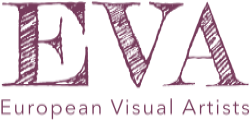Politicalnegotiations on the reform of the Copyright Directive in the Digital SingleMarket have entered their last phase. The European Parliament and the Councilof the EU are trying to concile their respective position with the help of theEuropean Commission in the so-called Trilogue. On 12 September 2018, theEuropean Parliament adopted its position on the matter, recognising theprinciple that internet giants (i.e. search engine companies) have to pay forthe use and circulation of visual authors’ work on their platforms. Contrarily,the Council has a much more nuanced position on this principle and, combinedwith the huge disinformation campaigns tech giants are leading, visuals artists’ right to a fair pay fortheir work risks to be misregarded once again. As the final political negotiationsare set to take place by the end of 2018, EVA urges:
European Parliament, stick to your vote on the Copyright Directive and deliver a fairer internet to your citizens and artists!
BACKGROUND
Why this piece of legislation is so important to visual authors
Search engine companies commercially benefit from the images to the detriment of authors. Consumers can use images in their original size and resolution in a multitude of ways on the search engine’s web site itself, without ever going to the original web site, often not even knowing the actual images are on another site. As a result, rightsholders suffer from less traffic to their sites, meaning less licensing income and less control over uses, while search engines generate advertising income for their owners. From the users’ point of view there is no need to visit the websites of the rightsholders, who are thus de facto deprived of their possibility to commercially exploit their works on their websites.
A main issue of thenew legislation is to introduce the liability for platforms – for user uploaded content as well as for search engines,which make huge profits with placement of advertisement combined with the useof protected works – today without sharing any of their high profits with theartists. It comes without surprise that doomsday scenarios and disinformationcampaigns by platformslike Youtube,Twitch and others are spread in order to make negotiators water down thecompromise that a big majority of European citizens’ representatives voted lastSeptember.
What the European Parliament has already agreed
Among others, Art. 13 b as voted by the majority of MEPs in the European Parliament is a welcome addition to the directive, as it corrects this anomaly. It currently reads:
Use of protected content by information society services providing automated image referencing
Member States shall ensure that information society service providers that automatically reproduce or refer to significant amounts of copyright-protected visual works and make them available to the public for the purpose of indexing and referencing conclude fair and balanced licensing agreements with any requesting rightholders in order to ensure their fair remuneration. Such remuneration maybe managed by the collective management organisation of the rightholders concerned.
Text adopted by the European Parliament in First Reading (art 13 b)
Read more:
- Prof. Dr. Silke von Lewinski, AutomatedImage Referencing Services, Munich, 3 December 2018.
- European Visual Artists & partners, WhyArticle 13 b Copyright Directive is urgently needed!, 14 November 2018.
- Text adopted by the European Parliament in first reading, P8_TA-PROV(2018)0337, 12 September 2018.
